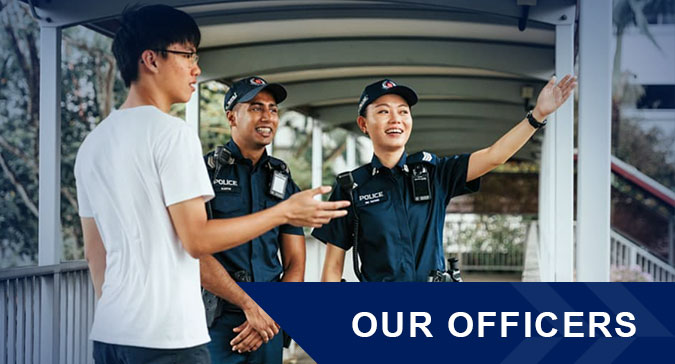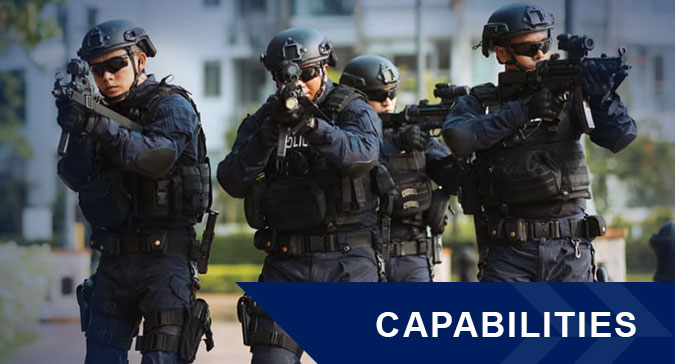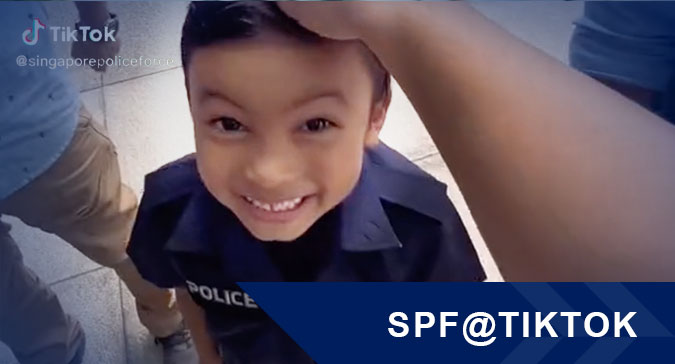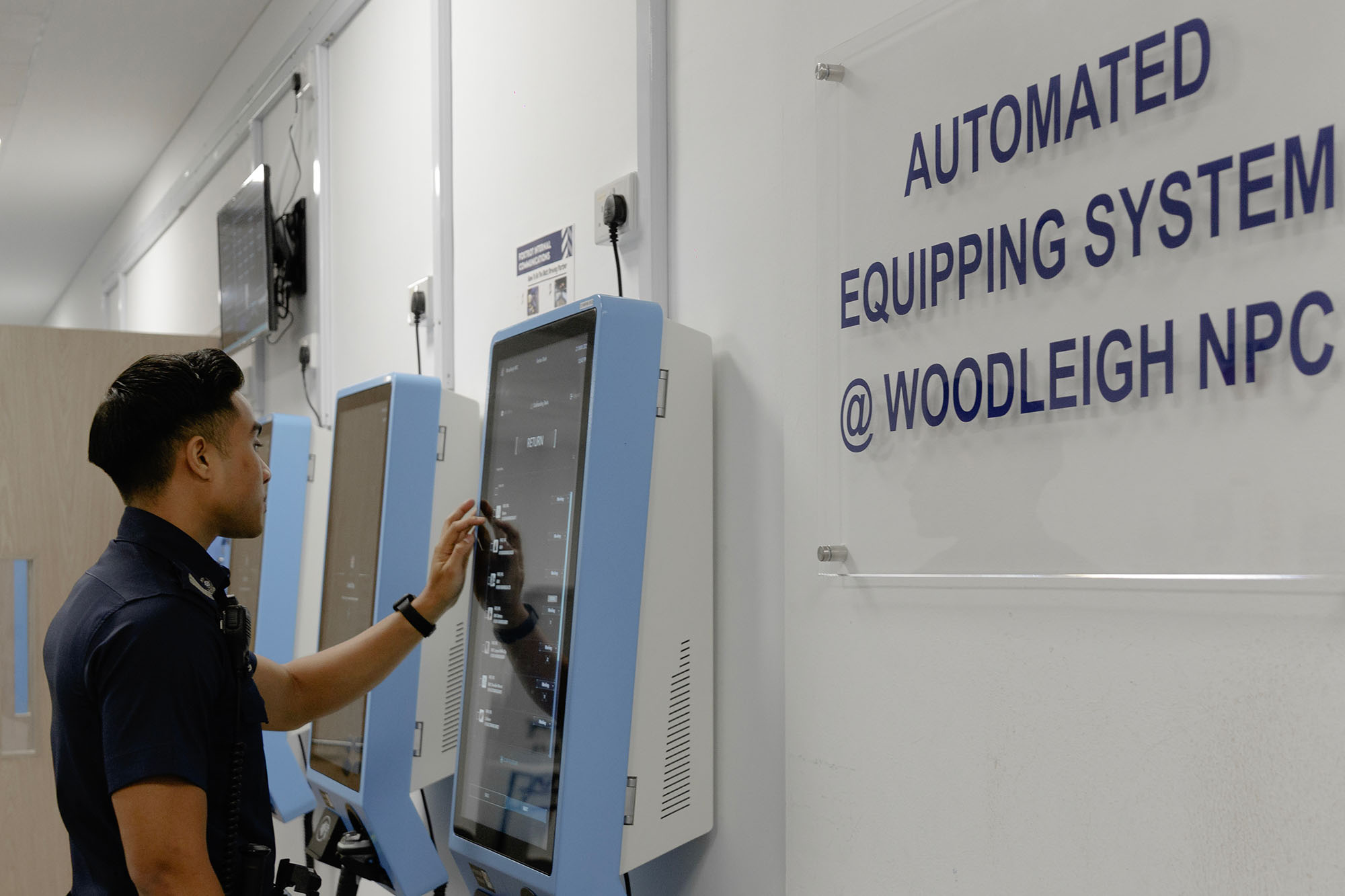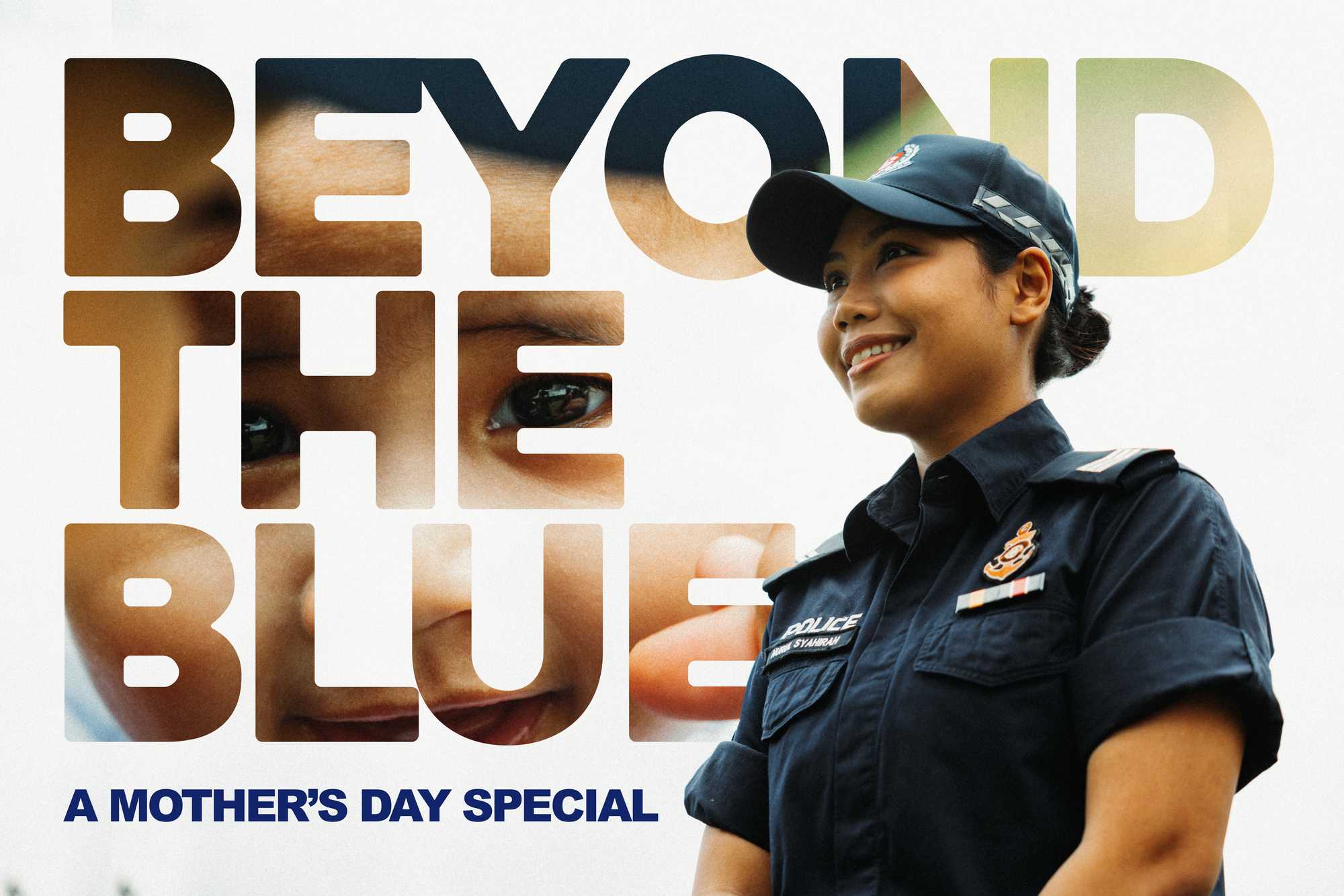The science and craft of conducting investigations after an explosion has gone off.
By: Shavina Sri
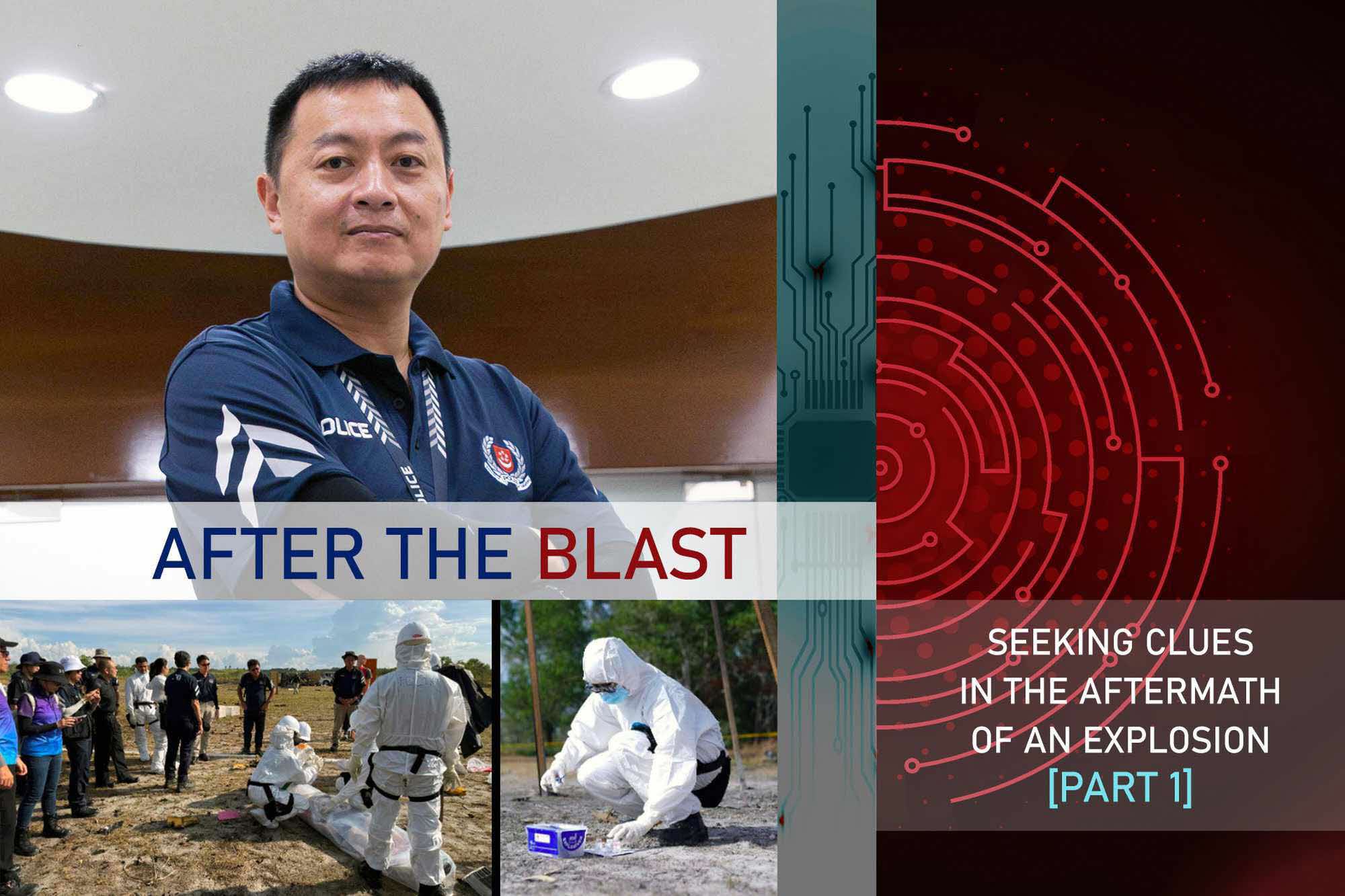
To the untrained eye, a post-blast scene may appear to be a mess of fragments, debris and devastation. But to seasoned officers like Mr Winson Chew who’ve been trained in Post-Blast Investigations (PBI), clues vital to the identification of the perpetrators can be found in the chaos.
In Part 1 of our “After the Blast” series, Mr Chew, a Bomb Technical and Investigation Specialist with the Forensics Division of the Criminal Investigation Department (CID), shares what it takes to conduct PBI.
What is PBI?
PBI is a multi-faceted response to blast incidents. Through the meticulous recovery and analysis of forensic evidence, crucial investigative leads can be generated, enabling Police to swiftly identify and apprehend perpetrators.
How did you get started in the field of PBI?
My journey began when I served in the Singapore Armed Forces (SAF) as a Singapore Combat Engineer. I started as a trainee and was eventually appointed a Team Commander in the Explosive Ordnance Disposal unit.
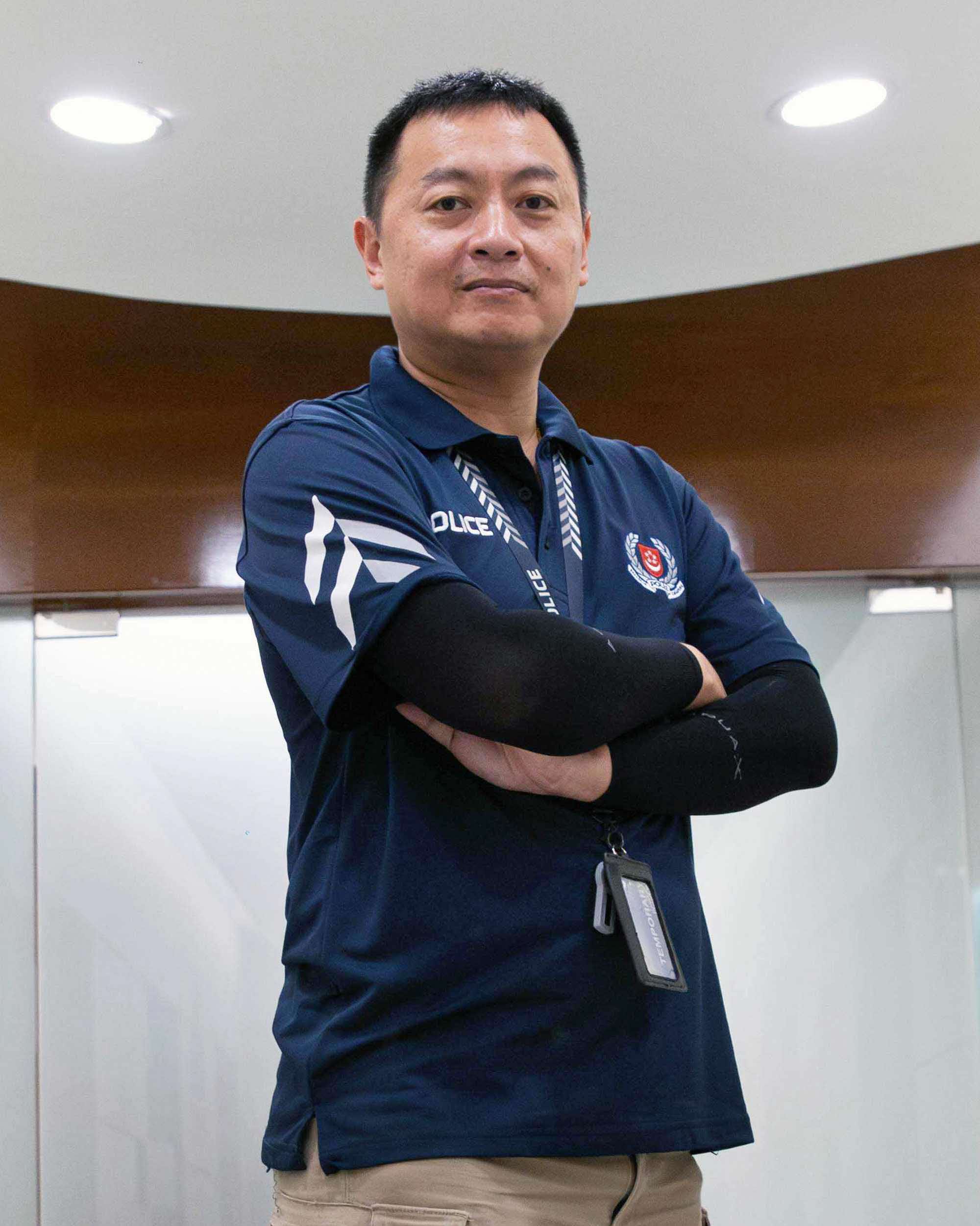
What began as a professional interest in the mechanics of explosives evolved into a fascination with the broader implications of their use. After leaving the SAF, I joined the blasting industry where I was actively involved in explosives-related work.
Throughout my career, I’ve also responded to numerous cases of war relic bomb disposals and bomb threat incidents, and also conducted preventive security sweeps for major events.
My desire to contribute to the nation’s crimefighting efforts prompted me to join the Home Team Science and Technology Agency (HTX) as a forward-deployed Bomb Technical and Investigation Specialist with the Singapore Police Force (SPF) in 2024.
What skills must PBI officers have?
Besides post-blast scene management skills, PBI officers must possess fundamental knowledge of explosives and their components.
In my view, resilience is another important trait that all PBI officers must have. When activated to a post-blast scene, our new “workplace” will now be out in the open, exposed to rain and shine, amongst dust, smoke and debris.
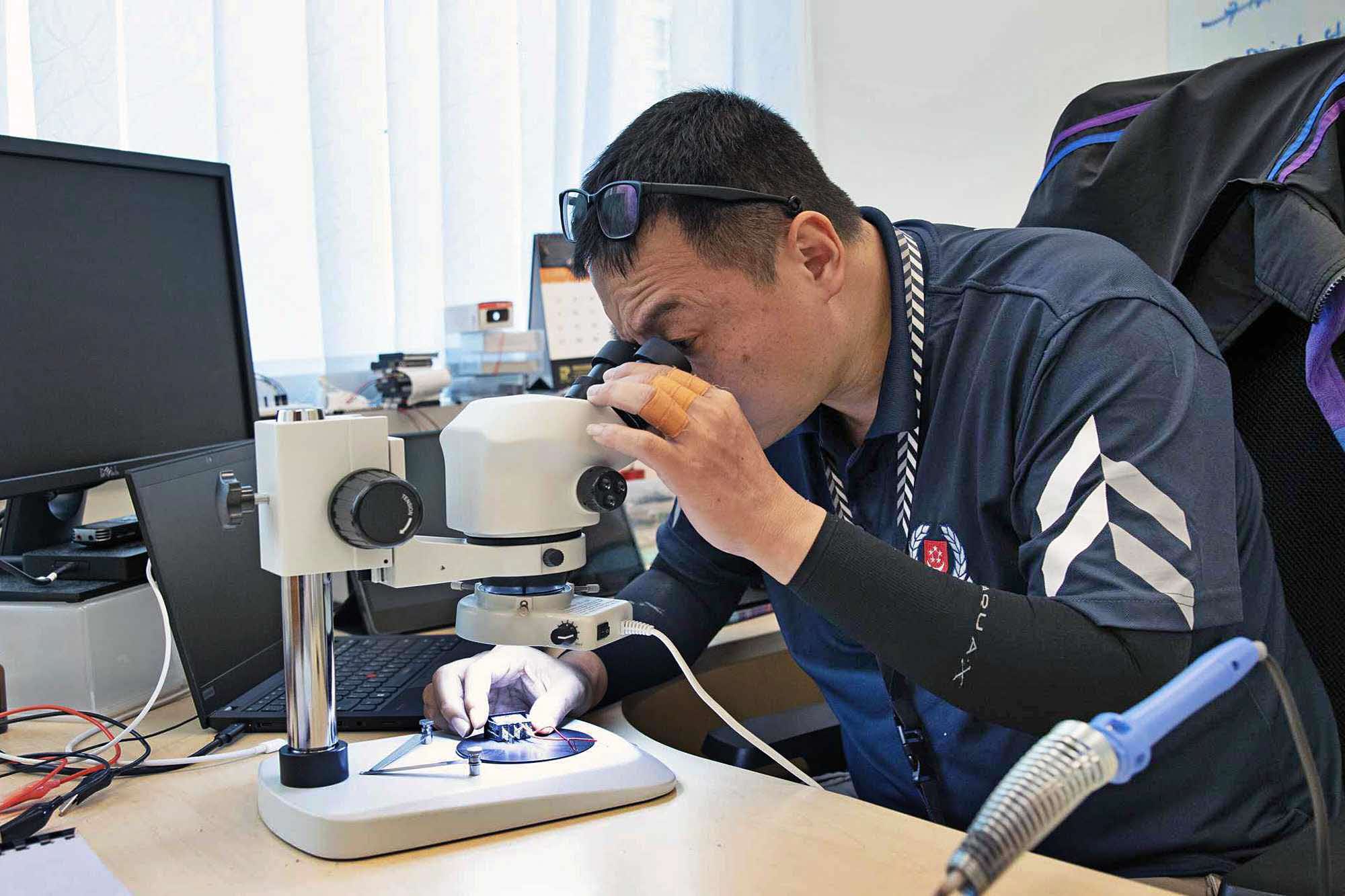
How do you ensure your PBI skillsets remain relevant and up to date?
It’s important for us not to be complacent. We should continuously seek to upskill ourselves to keep up with global trends in this field.
In the course of my work, I’ve also actively taken part in international workshops and collaborations. We can enhance our technical knowledge through engagements with global experts and law enforcement agencies.
One such international collaboration is Exercise Solar Wind, a joint PBI training exercise with the Royal Brunei Police Force (RBPF). The sixth edition of Solar Wind was conducted in November 2024.
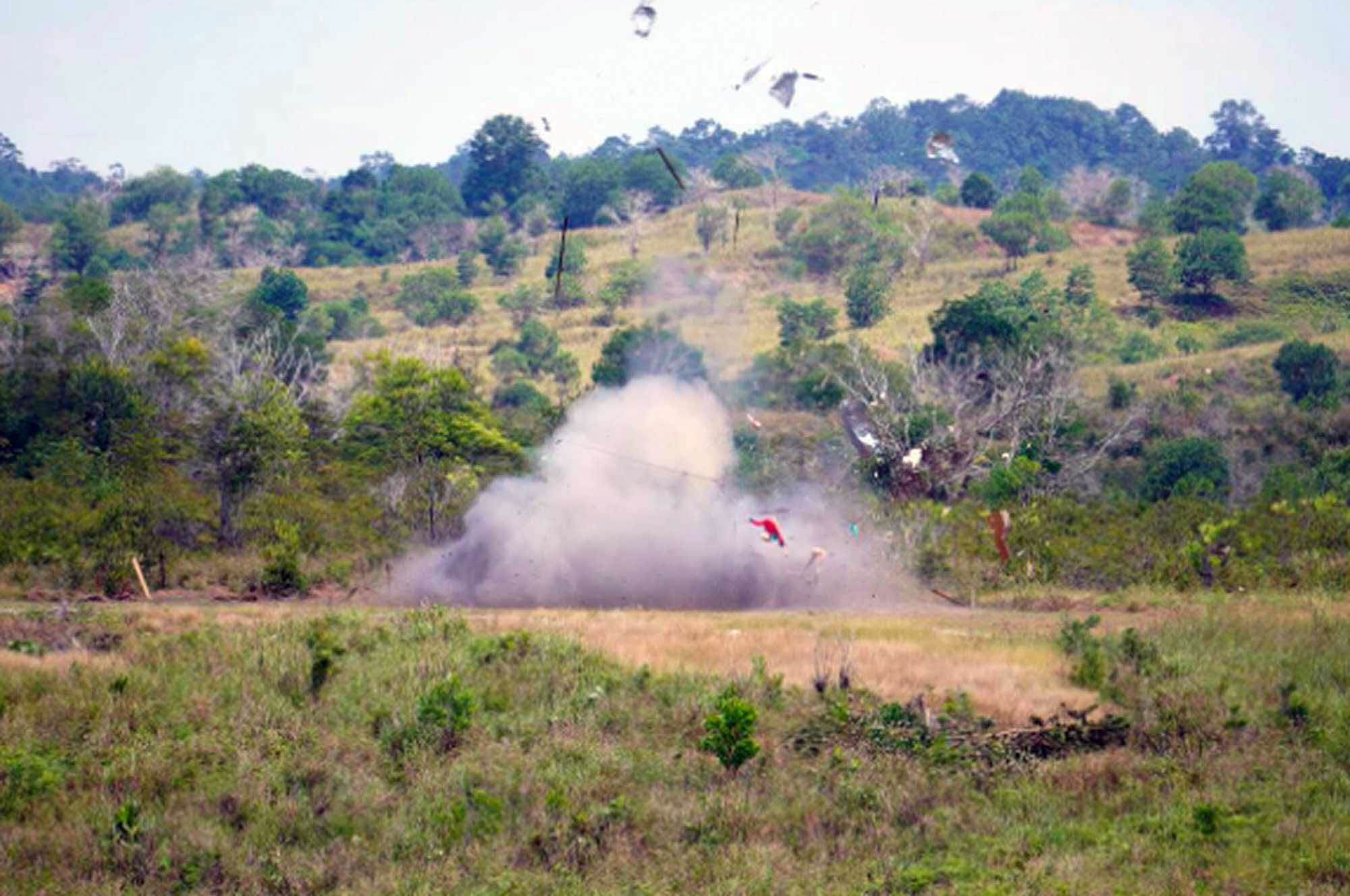
Tell us about what you did at Exercise Solar Wind VI.
As the Assistant Conducting Officer for the Exercise, my role was to provide guidance to the participants on how to process and manage post-blast incident scenes. I was also responsible for the designing of realistic incident scenes that simulated actual explosion environments, to maximise our learning opportunities while adhering strictly to safety protocols. Over the years, we’ve also increased the complexity and realism of the Exercises.

Our collaboration with the RBPF lends a valuable international dimension to our training. Through Exercise Solar Wind, both Forces were able to exchange viewpoints, identify areas for improvement and share best practices, with the goal of enhancing the PBI capabilities of both Forces and to be operationally ready to handle potential blast incidents in the future.
What would you like to share with officers interested in this unique domain?
Approach PBI with the utmost seriousness and an open mind. For new officers joining this field, ask if you’re unsure. In the same way that a small piece of debris can hold vital clues in PBI, a simple question may spark further discussions or even research into an underexplored area in this field.
Exercise Solar Wind VI
A PBI training exercise codenamed “Exercise Solar Wind VI” was held in Brunei from 4 to 7 November 2024. The exercise was jointly conducted by the SPF and RBPF, with the support of HTX and the Health Sciences Authority. The Exercise involved close to 130 participants and is part of the SPF’s ongoing efforts to enhance its operational readiness in PBI and strengthen working relationships with local and foreign agencies. Learn more about Exercise Solar Wind VI here.


